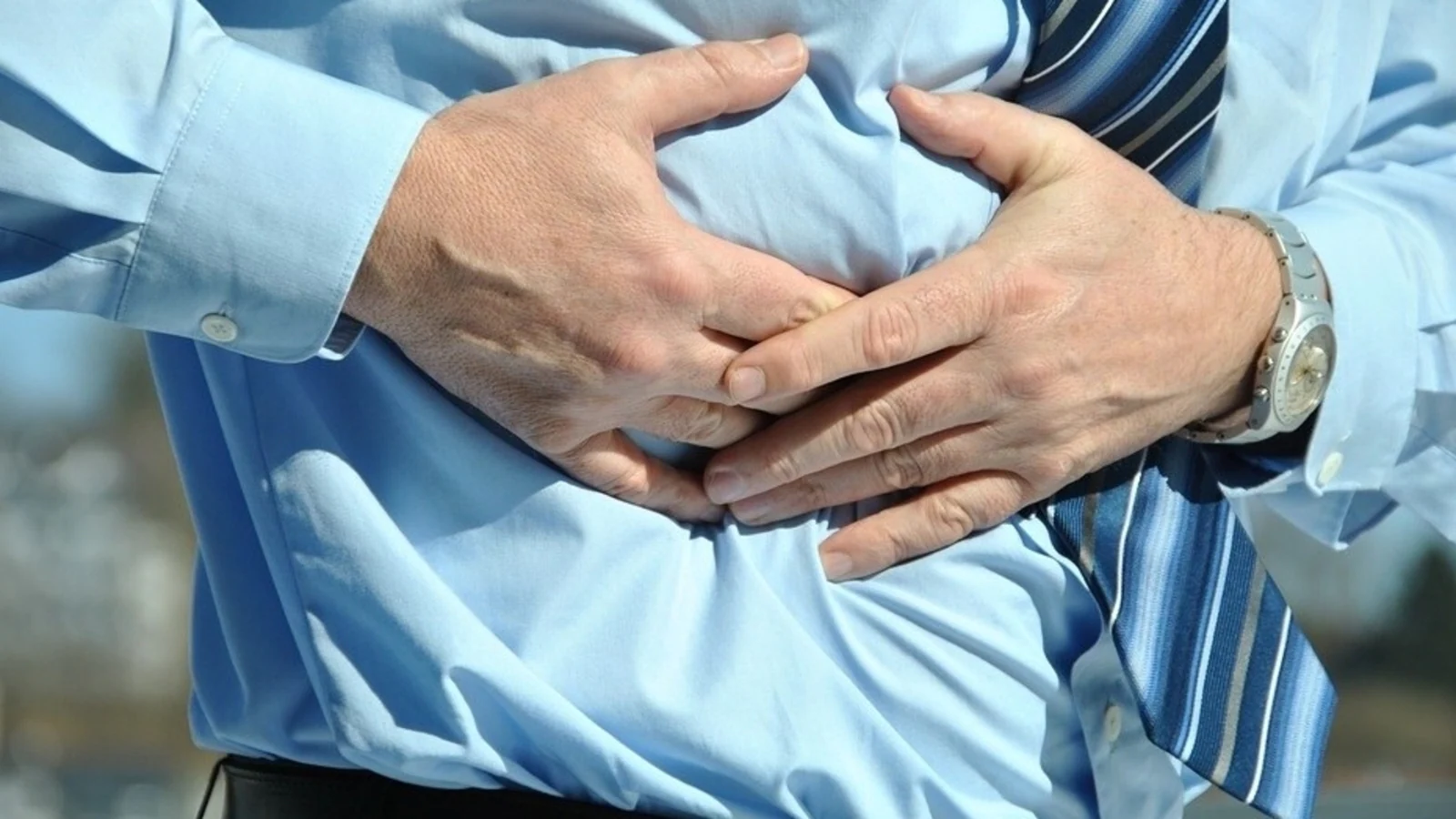Feeling a cold sensation on the outer part of the stomach can result from a mix of external and internal factors. Primarily exposure to cold weather or surfaces, coupled with insufficient clothing, may lead to this feeling.
Moreover, changes in blood flow influenced by factors such as the nervous system and lifestyle choices can contribute to the cold sensation. If this feeling persists or is accompanied by other unusual symptoms, seeking advice from a healthcare professional is recommended for a more thorough evaluation.
Here, you will see more tips to prevent this problem.
What Is a Cold Stomach?
A cold stomach is when your stomach feels cold for various reasons. In Chinese medicine, it’s seen as a different issue compared to stomach flu. It can be its own problem or connected to something else. If you have it, you might also feel stomach pain, nausea, a lack of appetite, diarrhea, or other similar symptoms.
What Are the Causes of a Cold Stomach?

A cold stomach can manifest for various reasons, signaling sensitivity to environmental conditions or internal bodily changes. This sensation may serve as an indicator of an underlying health condition.
Nervous System Involvement
Within the body thermoreceptors and specialized nerve cells, play a crucial role in detecting temperature shifts. These signals are transmitted to the nervous system, contributing to temperature regulation. While skin-level thermoreceptors govern responses like sweating and shivering, deeper ones, situated in the brain, spinal cord, and abdomen, operate more subtly.
Factors Leading to a Cold Stomach
External and internal factors contribute to the emergence of a cold stomach, each presenting distinct challenges to overall well-being.
Unhealthy Dietary Habits
Frequent consumption of raw or cold foods, carbonated beverages, and processed junk foods can disrupt the delicate balance of ‘Yang Qi’ in Chinese medicine philosophy. This imbalance, vital for bodily functions, may result in a cold stomach. Combining cold and hot foods can similarly disturb the equilibrium, exacerbating this condition.
Impact of Lifestyle Choices
A sedentary lifestyle marked by unhealthy dietary practices, lack of physical activity, and elevated stress levels can compromise the proper functioning of the stomach and spleen. This disruption can lead to malnourishment in the stomach, contributing to the development of a cold stomach.
Weather-Related Influences
According to Chinese traditional medicine, environmental factors such as wind, cold, summer heat, dampness, dryness, and fire can affect the body. Prolonged exposure to air-conditioned environments in hot weather can subject the abdomen to direct cold influences, potentially resulting in a cold stomach.
Medical Conditions and Infections
Various medical conditions can contribute to the onset of a cold stomach, underscoring the importance of seeking professional medical attention.
- Gastroenteritis: Inflammation of the stomach lining or small intestine, often caused by viruses or bacteria, can lead to stomach flu symptoms and a cold stomach.
- Infections: General infections may induce abdominal pain and chills, necessitating prompt medical intervention for symptoms like fever, vomiting, and difficulty breathing.
- Kidney Stones: Chills may accompany kidney stones, especially if an infection is present.
- Gastroparesis: A condition involving slowed stomach function, often linked to diabetes or chronic illnesses, may impact nerve signals, including thermoreceptors.
- Pancreatitis: Inflammation of the pancreas, whether acute or chronic, infectious or non-infectious, can lead to a cold sensation in the upper mid-left abdomen, requiring urgent medical attention.
Symptoms of a Cold Stomach and Associated Conditions
| Symptoms of a Cold Stomach | Conditions with Pain and a Cold Stomach |
| Stomach Ache with Cold Sensation | 1. Appendicitis |
| Chills | 2. Infectious Mononucleosis |
| Nausea and Vomiting | 3. Meningitis |
| Tastelessness | 4. Urinary Tract Infections |
| Diarrhea | 5. Food Poisoning (Salmonella Infections) |
| 6. Prostatitis | |
| 7. Inflammatory Bowel Disease | |
| 8. Cholecystitis | |
| 9. Hernia |
What does it signify when you exercise and feel cold in your stomach?
When your stomach feels cold during a workout, it’s a nuanced interplay of physiological factors. The varying demands placed on different body parts during exercise lead to divergent levels of activity. The muscles, in particular, require heightened blood flow to receive the necessary oxygen. As blood redirects from less active muscles and tissues to those in use, the stomach may feel colder to the touch post-exercise.
Furthermore, the natural process of sweat evaporation during workouts contributes to body cooling. As sweat evaporates, it has a cooling effect on the body, potentially contributing to the sensation of a cold stomach.
External factors such as weather conditions and attire worn during the workout also play a role in how the body responds and may influence the post-exercise cold feeling in the stomach.
Why Does Touching My Stomach Feel Cold During Pregnancy?
Pregnancy introduces another layer of complexity to the phenomenon of a cold stomach. While it can be challenging to differentiate between pregnancy, ascites, and belly fat, a consistently cold stomach during pregnancy is not uncommon. Several factors contribute to this occurrence:
- Stretched Skin: The natural expansion of the belly during pregnancy puts the skin at a greater distance from heat-preserving organs. Additionally, the weight of the growing fetus can impede blood vessels in the pelvis, altering blood circulation and potentially causing the stomach to feel colder.
- Anemia in Pregnancy: Iron deficiency, a common condition during pregnancy, can result in poor blood flow and insufficient oxygen supply to tissues. This can lead to a cold sensation in the belly. Seeking medical advice is crucial for proper management if anemia is suspected.
In addition, pregnant individuals experiencing a cold belly need not be overly concerned. It’s often a typical manifestation of the physiological changes occurring during pregnancy. To alleviate discomfort, incorporating extra layers of clothing and indulging in warm showers can be beneficial.
Why does your body’s fat parts feel colder?
The question of why certain areas, particularly those with more fat, feel cold is rooted in the distinctive properties of body fat. Unlike muscles, which readily radiate heat due to an abundance of blood vessels, fat has low heat conductivity. Adipose tissues in fat-rich areas contain fewer blood vessels that are more constricted, leading to a reduced capacity for heat transfer.
How Can a Cold Stomach Be Fixed?

In tackling the issue of a cold stomach, understanding its causes is crucial. While there isn’t a specific remedy for the cold feeling induced by exercise, focusing on blood circulation and cold sensitivity can mitigate symptoms and prevent their exacerbation.
1. Sustain a Consistent Diet
Prioritizing a regular and well-balanced diet becomes a shield for the stomach and digestive system. Opt for small, frequent meals to maintain gut health. Avoiding prolonged periods of hunger is key to preventing a weakened gut. Sidestep raw and chilly foods like ice, sushi, and ice cream. Additionally, steer clear of overly spicy and fried foods, which can adversely impact the digestive system.
2. Hydrate Adequately
Conditions affecting the body’s metabolism can contribute to a cold stomach. Addressing dehydration is crucial in this context. Adequate fluid intake helps regulate metabolism and may alleviate symptoms. In severe cases, intravenous fluids or other supportive therapies might be necessary for symptom relief.
3. Prioritize Rest
Ensuring sufficient rest is indispensable. Quality sleep and a reduction in daily activity levels can make a substantial difference. Sometimes, all that’s needed is a cozy ensemble, warm socks, and a soothing hot shower to alleviate discomfort.
4. Consider Medication
In certain instances, medication can be a valuable ally in relieving a cold stomach and associated discomfort. Antibiotics may be recommended to address specific conditions contributing to stomach coldness and pain.
For those grappling with digestive issues, antiemetic or anti-diarrheal medications can offer relief. However, it’s imperative to consult with a healthcare professional before opting for over-the-counter medications.
5. Abstain from Smoking and Excessive Alcohol Consumption
The detrimental impact of excessive smoking and alcohol on the gastric mucosa can elevate the burden on the stomach. Abstaining from these habits not only supports stomach health but also enhances blood flow and oxygen levels. This positive shift can contribute significantly to the overall well-being of the digestive system.
FAQ’s
1. What does it mean if my stomach is cold?
In many cases, a cold stomach is linked to blood flow and sensitivity to cold. Conditions like bacterial gastroenteritis may require antibiotics for relief.
2. Does a cold stomach mean burning fat?
No, No direct connection exists between a cold stomach and the fat-burning process; it’s primarily related to changes in blood flow.
3. Why do I feel the cold water in my stomach?
Cold water can irritate gut nerves, causing cramps as the body works to heat the water back to body temperature.
4. Why do I have chills in my stomach?
Chills and abdominal pain may result from bacterial or viral conditions, such as food poisoning or gastroenteritis, or more serious issues like kidney infection.
5. How do you calm a cold stomach?
To soothe a cold stomach, try remedies like drinking fluids, following a BRAT diet, avoiding certain foods, getting adequate rest, using medications, taking probiotics, and experimenting with acupressure.
6. Should your stomach be hot or cold?
Yes, The body prefers a core temperature of about 100°F for optimal digestion. If cold temperatures enter the stomach, the body quickly works to warm it.
7. Does sleeping naked help lose weight?
Yes, Sleeping naked may aid weight loss by reducing body temperature and improving ventilation, promoting better sleep quality.
8. How do you know if you’re losing belly fat?
Progress in losing belly fat may not always reflect on the scale but can be evident in looser pants as you add muscle mass and reduce fat around the waistline.
9. Do you feel cold when losing weight?
Yes, During severe calorie restriction and weight loss, the metabolism may slow down, leading to a sensation of cold.
10. Why do I feel cold spots on my body?
Medical conditions like hypothyroidism, low blood sugar, or a blocked artery can cause cold skin unrelated to external conditions. Consult a doctor if the issue persists.
Conclusion
In the end, a combination of internal and environmental causes may cause the outside of the stomach to feel cold. This feeling may be brought on by exposure to cold weather, undergarments, and variations in blood flow brought on by the neurological system and lifestyle decisions.
Even though the symptoms are usually transient and related to environmental factors, persistent or concerning symptoms should be evaluated by a medical practitioner.
So, understanding the range of factors influencing this feeling highlights the importance of individualized therapy and suggests that additional research is required if the feeling of cold persists.











